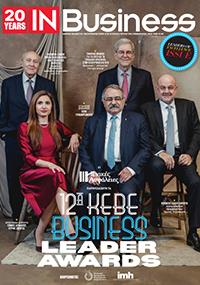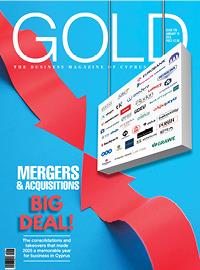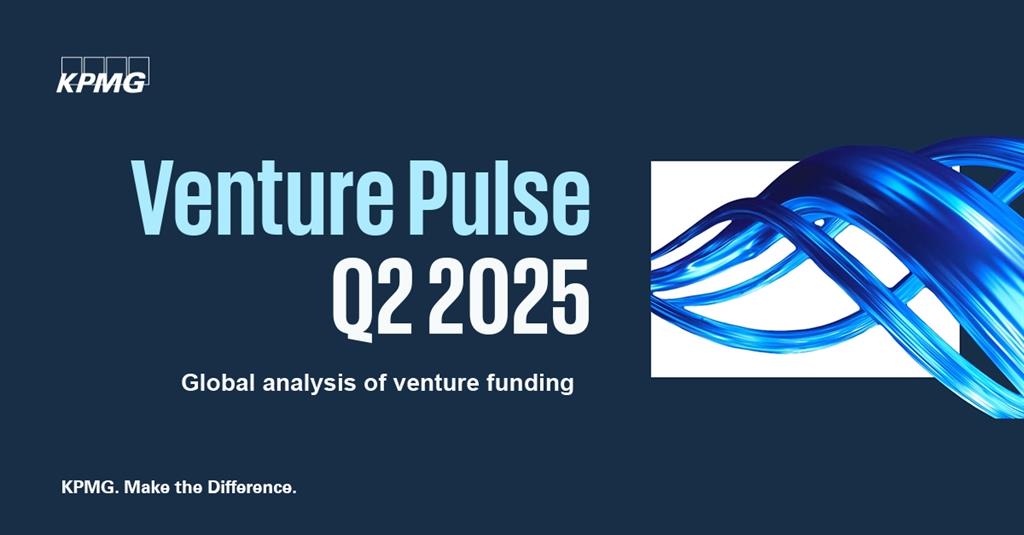Global venture capital investment declined from $128.4 billion in Q1’25 to $101.05 billion in Q2’25 according to the latest edition of Venture Pulse from KPMG Private Enterprise. Despite the drop, Q2’25 remained a relatively strong quarter despite ongoing geopolitical conflicts, trade tensions, and macroeconomic uncertainty, given the total from Q1’25 included a $40 billion outlier raise by OpenAI.
The focus on VC investors remained largely on large-scale opportunities, especially in the AI and defencetech space. The quarter’s largest deal was a $14.3 billion transaction by US-based Scale AI, underscoring the sector's continued momentum. Despite the solid VC investment, however, global VC deal volume dropped to a decade-low of 7,356 in Q2’25, down from 9,314 in Q1’25, as many investors paused activity outside of resilient sectors like AI, fintech, and defencetech.
The Americas led VC investment globally, attracting $72.7 billion—more than 70% of all funding during Q2’25; of this amount, over $70 billion came from the US alone. Europe came a very distant second, attracting $14.6 billion across 1,733 deals. Asia, meanwhile, continued to lag, pulling in just $12.8 billion across 2,022 deals.
“Despite a challenging global environment, marked by geopolitical tensions and significant trade-related uncertainties, Q2’25 showed that venture capital investment remains resilient—particularly in sectors that are driving long-term technological transformation,” said Conor Moore, Global Head of Private Enterprise at KPMG International, and Partner at KPMG in the US. “While investors are taking a more cautious approach to their investments overall, there’s clearly strong conviction behind the megadeals we’re seeing in areas like AI, defencetech, and fintech. What we’re seeing is a reallocation of capital, not a retreat.”
Q2’25 — Key highlights
- Global VC investment fell from $128.4 billion across 9,314 deals in Q1’25 to $101.05 billion across 7,356 deals in Q2’25.
- VC investment in the Americas declined from $98.5 billion to $72.7 billion quarter-over-quarter, driven mainly by the US—which saw investment fall from $93 billion to $70 billion over the same period. Europe saw VC investment hold steady at $14.6 billion, while Asia saw one of its weakest quarters in over a decade with just $12.8 billion of VC investment in Q2’25.
- Corporate VC (CVC) dropped from $82.7 billion in Q1’26 to $50.2 billion in Q2’26, with the US accounting for $36.2 billion. CVC in Asia hit a ten-year low of $6 billion.
- Software was the top sector for VC investment, attracting $116.1 billion as of the end of Q2’25; the sector is well on pace to surpass last year’s annual total of $148.2 billion.
- Global exit value rose to $111.1 billion in Q2’25, up from $88.9 billion in Q1’25. US exits climbed from $52.4 billion to $67.8 billion, while Asia’s jumped from $19.2 billion to $29.7 billion. In Europe, exit value fell from $13.6 billion to $11.6 billion.
- Global VC fundraising remained incredibly sluggish, with only $48.8 billion raised by the end of Q2’25, on track to sink below 2024’s eight-year low of $187.3 billion.
U.S. dominates global VC investment in AI, attracting all $1 billion+ deals in the space
The US attracted almost 70% of global VC investment during Q2’25, including all six $1 billion+ transactions this quarter. The AI, defencetech, and spacetech sectors accounted for the five largest deals, including Scale AI ($14.3 billion), World View ($2.5 billion), Anduril Industries ($2.5 billion), Thinking Machines Lab ($2 billion), and Sale Superintelligence ($2 billion raise). Defencetech-focused AI companies also raised the two largest deals in Europe in Q2’25, including Germany-based Helsing ($682 million) and Portugal-based Texever ($500 million).
Fintech sees new surge in interest
While defencetech and AI were the hottest sectors of VC investment during Q2’25, fintech also saw a new wave of interest from global VC investors. During the quarter, US-based Plaid raised $575 million, UK-based XY Miners raised $300 million, Germany-based Scalable Capital raised $174 million, and Brazil-based expense management firm Clara raised $80 million. The fintech sector also saw several successful IPO exits in the US, including Circle—issuer of the USDC stablecoin, digital bank Chime, and Israel-based mobile investment platform eToro.
AI megadeals help drive VC investment in the Americas
Venture capital investment in the Americas reached $72.7 billion across 3,425 deals in Q2’25. Investor enthusiasm for artificial intelligence continued to accelerate, highlighted by Scale AI’s $14.3 billion transaction. Other major deals included World View ($2.5 billion), Anduril Industries ($2.5 billion), Thinking Machines Lab ($2 billion), Safe Superintelligence ($2 billion), and Grammarly ($1.15 billion).
The software sector remained the cornerstone of VC activity in the Americas, with $99 billion invested in the first half of 2025—already approaching 2024’s full-year total of $106 billion. If the trend continues, software could challenge its 2021 peak of $154 billion. Comparatively, the transportation sector was well off of its 2024’s results as of mid-year, both in terms of deal count—70 deals, compared to 190 during all of 2024—and funding volume—$2.1 billion, compared to $8.1 billion during all of 2024. Investment in B2B solutions remained relatively robust during the quarter, while B2C startups continued to face significant headwinds.
Outside the U.S., regional performance was more mixed. Canada’s VC investment edged up to $1.3 billion—a modest increase from the previous quarter, despite lingering trade friction with the U.S. In Latin America, Mexico had a standout quarter with $833 million raised, driven largely by car-trading platform Kavak’s $527 million round. Brazil, however, saw continued weakness, recording just $322 million in funding—well below historical averages.
VC Investment in Europe holds near steady as investors shift focus to larger, Late-stage Deals
VC investment in Europe held nearly steady at $14.6 billion in Q2’25, down only slightly from $16.3 billion in Q1’25, despite a drop in deal count from 2,358 to 1,733. The decline reflected a shift toward larger, later-stage deals, as VC investors prioritised capital efficiency and risk reduction given the uncertain macro environment.
The largest raises in Europe during the quarter included Germany-based Helsing ($682.9 million), Portugal-based Tekever ($500 million), Israel-based Cato Networks ($359 million), UK-based Believ ($338.7 million), and $300 million by both Israel-based AI21 Labs and UK-based XY Miners.
VC investors in Europe continued to show strong interest in startups with clear commercial traction, especially in the AI space—fueled by EU and national funding initiatives. At a sector level, the software space had attracted $10.9 billion by the end of Q2’25—on pace to match 2024’s annual total. Meanwhile, the energy sector was well off pace, with just $1.1 billion at mid-year, compared to $4.8 billion during all of 2024.
Asia-based VC investment remains subdued amid fierce headwinds
In Asia, VC investment remained very weak in Q2’25, despite a slight increase in total investment from $12.6 billion in Q1’25 to $12.8 billion—still the second-lowest total in over a decade. Deal volume in Asia dropped from 2,663 in Q1’25 to just 2,022 in Q2’25.
Deal sizes in Asia were modest during the quarter; the largest rounds included China-based Zelos Tech ($300 million) and Yangtze Memory ($218.9 million); in addition to India-based PB Healthcare ($218 million), Porter ($200 million) and Groww ($200 million).
Software-based VC investment in Asia has been particularly soft this year, with just $5.2 billion invested by the end of Q2’25—well behind 2024’s $18.3 billion. VC investment in both the energy and biotech sectors also lagged, with just $700 million and $1.6 billion respectively as of mid-year—compared to $5.3 billion in energy and $5.3 billion in biotech during 2024.
Corporate VC activity in Asia hit one of its weakest levels ever, with just $6 billion in Q2’25 and $12.2 billion year-to-date—down sharply from $48 billion during all of 2024 and far below the Q3’21 peak of $45.2 billion.
Outlook for Q3’25
Heading into Q3’25, VC investors globally are expected to remain cautious given the continued delay in exits across many sectors, rising geopolitical tensions, and ongoing uncertainties related to tariffs and other global trade policies. AI will likely remain the hottest sector of VC investment globally—particularly as governments continue to introduce large-scale funding programs to attract AI startups and drive ecosystem development and technology sovereignty.
“We expect that during Q3’25, VC investors will remain highly selective, with capital flowing into sectors with enough resilience to withstand global trade risks or ones that have critical relevance,” said Francois Chadwick, Global Lead for Emerging Giants and Partner at KPMG in the US. “AI will likely remain the standout sector for investment, but investor interest in defencetech, healthtech, and fintech will likely grow as well.”
Pangratios Vanezis, Board Member and Head of Enterprise & Startups, KPMG in Cyprus, commented: “While the global venture capital landscape remains dominated by mega deals in AI and defencetech, Europe continues to focus on risk reduction and capital efficiency, favoring safer, later-stage deals — particularly in AI. At the same time, we see unique opportunities for Cyprus to leverage its strategic location and growing tech ecosystem to attract regional investment. With targeted policies and a focus on sectors such as fintech, defencetech, and emerging technologies, Cyprus can position itself as a competitive hub bridging Europe, the Middle East, and Africa — especially at a time when investors are seeking resilient markets with strong growth potential”.
View the full report here










